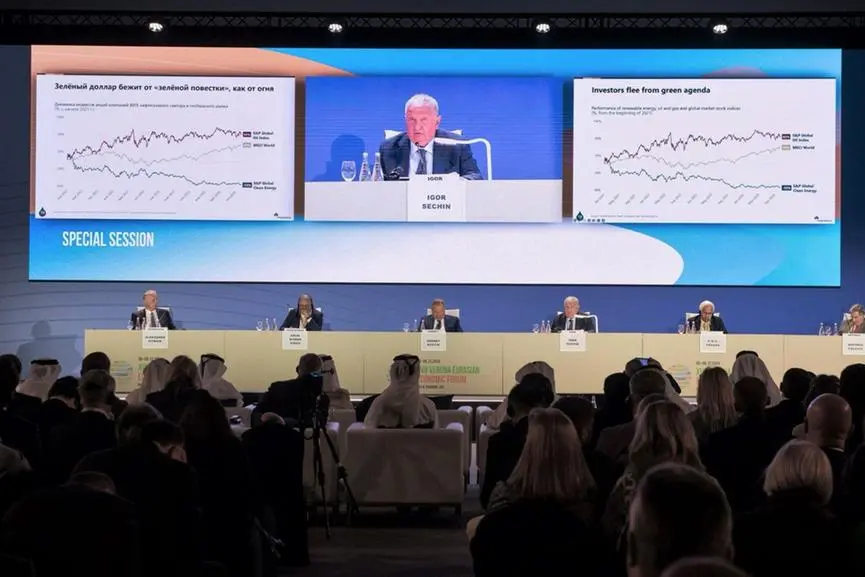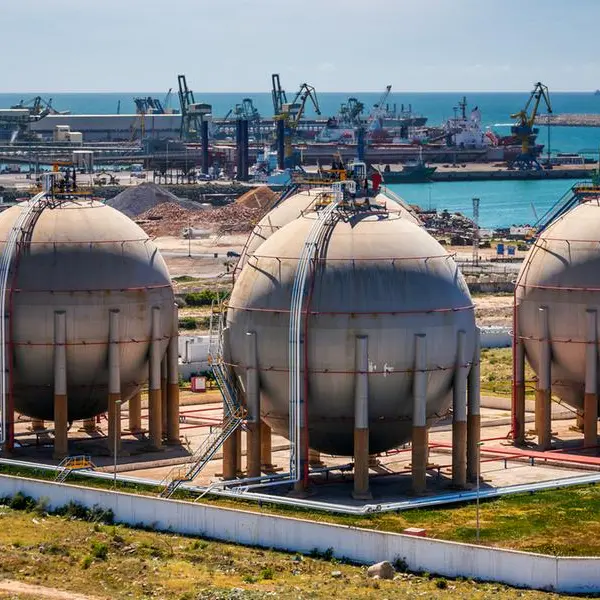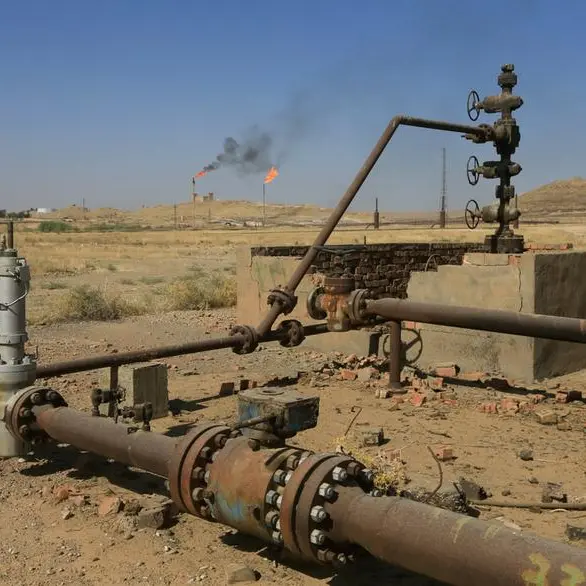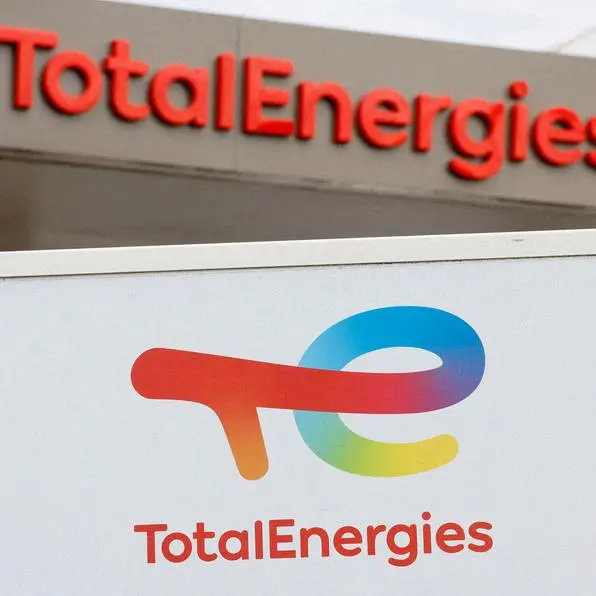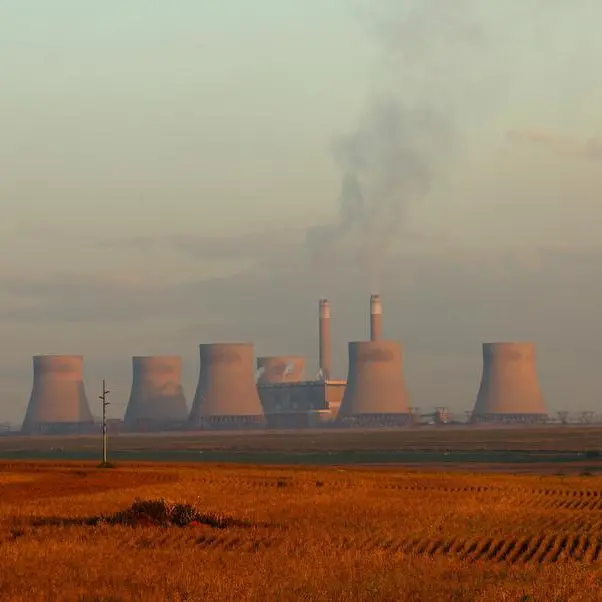PHOTO
With fossil fuels accounting for more than 80 percent of all primary energy consumed worldwide, a pragmatic approach to energy transition is essential, according to Igor Sechin, CEO of Rosneft, Russia’s largest oil producer.
Speaking at the XVII Verona Eurasian Economic Forum in Ras Al Khaimah on Thursday, Sechin highlighted the centrality of fossil fuels in the current energy system and outlined the challenges of transitioning to low-carbon energy sources.
“Oil accounts for more than 30 percent of global energy consumption, coal 25 percent, and gas 22 percent,” he remarked, adding that fossil fuels remain the backbone of the global energy system.
In his address titled 'Farewell to Illusions: World Energy in the Thucydides Trap,' he referenced studies by McKinsey and other research bodies to highlight the superior transportability and energy density of fossil fuels.
“For example, the amount of energy that can be moved 1,000 miles for just under one dollar - for pipeline oil, it’s up to 4.4 megawatt-hours (MWh), for pipeline gas it’s up to 1.2 MWh, while for hydrogen this figure will be only a fraction of 0.2 MWh.”
He underlined that diesel is nearly 30 times more efficient than hydrogen, while natural gas surpasses wind and solar by 270 times.
Challenges of transition
Sechin challenged predictions of an imminent decline in fossil fuel demand, pointing to economic growth in developing nations.
“Raising living standards in developing countries to half the level of developed nations would require nearly doubling global oil production,” he noted, adding that investment bank JPMorgan projects global oil demand will rise by six million barrels per day by 2035, driven by emerging economies such as India.
He also critiqued the rapid shift away from fossil fuels, citing historical climatic cycles and the immense financial and structural hurdles to transitioning to low-carbon energy sources.
Sechin pointed out that meeting the Paris Agreement goals by 2050 would require $70 trillion in investments and a tenfold increase in low-carbon electricity generation capacity, a feat he described as “unrealistic.”
He also highlighted setbacks faced by green energy companies, with many failing to meet targets on time, leading to investor hesitancy. On the other hand, oil majors such as Chevron, BP, and Shell are scaling back alternative fuel projects while Denmark’s Orsted canceled a methanol plant due to low demand.
The Rosneft CEO advocated for a pragmatic approach that acknowledges the continued role of fossil fuels while emphasising responsible energy demand management.
He also underlined the huge potential for Eurasian cooperation in his concluding remarks.
“I am convinced that the potential for cooperation is enormous, and we are only at the beginning of this journey,” he said, quoting the UAE’s first president, the late Sheikh Zayed bin Sultan Al Nahyan: “Unity is the path to strength, honour, invulnerability, and common good.”
The Verona Eurasian Economic Forum brought together key stakeholders from Europe and Asia to discuss cooperation across economic and energy sectors.
(Editing by Anoop Menon) (anoop.menon@lseg.com)
Subscribe to our Projects' PULSE newsletter that brings you trustworthy news, updates and insights on project activities, developments, and partnerships across sectors in the Middle East and Africa.
